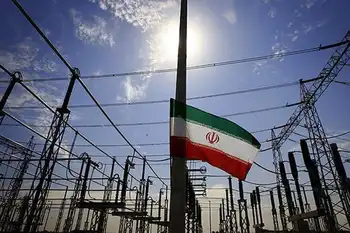AECL favoured to build Ontario reactors
By Globe and Mail
NFPA 70e Training
Our customized live online or in‑person group training can be delivered to your staff at your location.

- Live Online
- 6 hours Instructor-led
- Group Training Available
Premier Dalton McGuinty has instructed the head of the province's infrastructure agency to begin bilateral negotiations with the Harper government, said sources familiar with the talks.
"If the feds step up to the plate, then I think there's likely to be a deal with AECL," one source said.
Ontario wants to give Canada's flagship nuclear company the nod, another source said.
"AECL has basically been chosen," he said. "The province wants to negotiate with AECL and the feds on an exclusive basis. But they have not notified the federal government of that yet."
A key issue is how much risk the federal government would assume for any cost overruns. The province wants a company to design and build reactors on a so-called turnkey, fixed-price basis in the hopes of avoiding the mistakes associated with previous projects, which saddled Ontarians with $12-billion in debts.
Officials in the Premier's office declined to comment.
Diane Flanagan, a spokeswoman at Infrastructure Ontario, said a winning bidder has not been chosen. "The process is still under way," she said.
Crown-owned AECL is competing against two global players to build Ontario's first new reactors since the 1980s at the Darlington nuclear station in Clarington, east of Toronto. AECL's main rival is France's Areva Group. A third company, Westinghouse Electric Co., wants to just supply technology rather than a turnkey operation, sources have said.
Federal officials and Areva Canada president Armand Laferrere declined to comment on the state of the bid. Areva has said that AECL has not completed the design work on its Advanced Candu reactor, which it said increases the risk of cost over-runs.
The new reactors are part of the Ontario government's plan to spend $26-billion expanding and refurbishing its fleet of reactors to help meet the province's electricity needs over the next two decades. But such projects can be politically risky because costs for raw materials and labour are rising.
George Smitherman, the province's Deputy Premier in charge of infrastructure, "had sticker shock at all the bids," a source said.
Sources say Ontario wants Ottawa to provide financial support and backing for AECL's price guarantees. At the same time, Queen's Park has long worried about Ottawa's commitment to AECL - the federal government is mulling either selling a majority or minority interest in the company. But AECL's future is intrinsically linked to Ontario, because its value will depend on whether it can sell reactors in its home province.
The Ontario decision comes as the federal government is set to solicit interest among Canadian and international companies in forming a strategic partnership with AECL, including taking equity stakes.
Ottawa has been quietly reviewing AECL ownership for more than two years, and has been sitting on a report from the National Bank of Canada that says the corporation would benefit from a larger international partner as it attempts to sell its new ACR technology around the world.
Sources say the federal government has called in a team of international bankers to provide a valuation for AECL and its assets.











